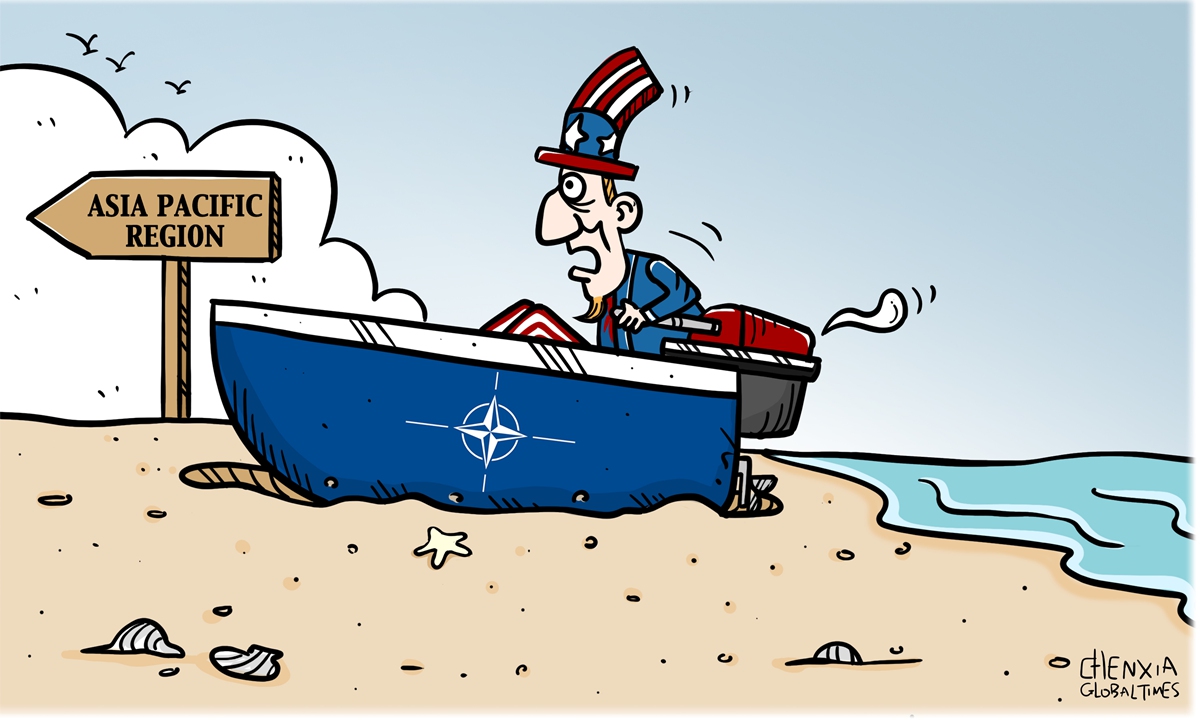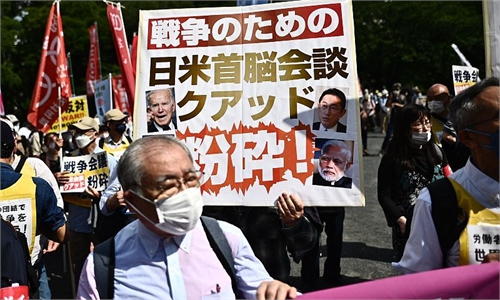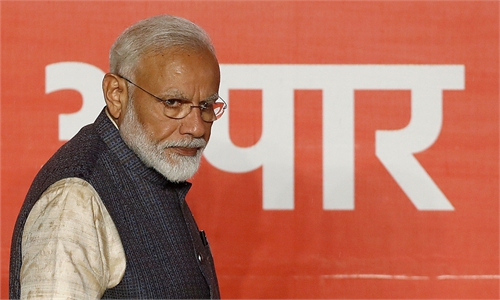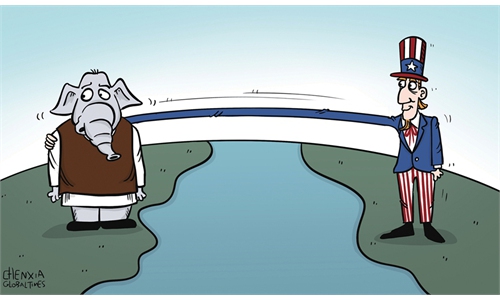
Illustration: Chen Xia/GT
US President Joe Biden on Friday kicked off his first trip to Asia since taking office. First wrapping up a visit in South Korea, he landed in Japan on Sunday where he will participate in the Quad summit with the leaders of Japan, India and Australia.This will be the 4th summit of the group and the second one offline. It also comes amid recent changes of government in both Japan and Australia. Occurring at a critical juncture of rising uncertainty in the Asia-Pacific region, as well as the background of the Russia-Ukraine conflict, the Biden administration is seeking to push both strategic and political considerations in this event, one of its core missions being deepening the level of strategic cooperation among the four countries, deepening the institutionalization of the Quad and attempting to move forward toward an Asia-Pacific version of NATO.
After Biden took office, he has tried to establish small cliques of allies in the Asia-Pacific region to form a united front against China. The Quad has in turn become a strategic asset that the US highly relies on to advance its agenda in the Asia-Pacific.
As a result, the Biden administration has sought to enhance the Quad's core competitiveness and pursue regional deterrence in a bid to try and make it the dominant mechanism for cooperation in the Indo-Pacific region.
Following the outbreak of the Russia-Ukraine conflict, the White House's intention to push forward a so-called Asia Pacific version of NATO has become ever more apparent. NATO has also actively cooperated with the US to increase its intervention in Asia-Pacific affairs and provoke confrontation between camps. For example, NATO for the first time invited Japan and South Korea to its foreign ministers meeting on April 7, and has increasingly interfered in China's internal affairs on issues such as the South China Sea and the Taiwan Straits. Prime Minister of Japan Fumio Kishida will attend a NATO leaders summit in late June. As US allies in the Asia-Pacific coordinate with NATO, the US led-Quad may be strengthened, which will intensify the growing arms race and geopolitical conflict across the region. With a haze of cold war looming over Asia, the so-called free and open "Indo-Pacific" that the Quad brags about may develop into one of chaos and disorder.
However, although the US hopes to accelerate the institutionalized cooperation of the Quad, its attempt to turn it into an Asia-Pacific version of NATO is unlikely to succeed.
First, the Quad has its own limitations, which makes it difficult to develop it into a formal security alliance. As of present, the Quad is only a diplomatic forum other than a treaty-based alliance. In order to elevate the Quad into a new level, it is necessary to integrate the political, economic and military resources of the four countries. However, they lack the political foundation to do so.
For example, whilst Australia and Japan among the four Quad countries are US allies, India has no alliance treaties with any of them and it still strives to uphold its strategic autonomy in various platforms. Whether or not the Quad can succeed in becoming an Asia-Pacific NATO hinges upon India, with its non-aligned tradition making it cautious in security cooperation. India will not blindly follow the US, which is seen most explicitly in its neutral stance on the Russia-Ukraine conflict, as well as its insistence upon increasing economic and trade exchanges with Moscow.
Secondly, the Quad does not conform to the trend of regional development and the will of most countries. Asia's rapid development over the past few decades is inseparable from the overall stable and prosperous regional situation. Most countries cherish their hard-won peace and have no intention of taking sides between the US and China, let alone promoting confrontation between blocs. Maintaining a balanced and neutral foreign policy is in the rational interests of most countries.
On the other hand, as a leading and non-aligned organization for regional cooperation, ASEAN is increasingly skeptical about these small multilateral mechanisms led by the US. It is also worried that these newly created small circles will impact ASEAN's neutral status and disrupt the existing framework of regional cooperation. Besides, blindly joining the anti-China Quad will almost certainly lead to the deterioration of relations with China.
Ultimately, US-led Quad and the Indo-Pacific Strategy strive to play geopolitical games under the misleading banner of promoting regional cooperation. In the long run, this will seriously undermine the security and development interests of regional countries, and most countries have a clear understanding of this. Therefore, the Quad's attempt to become institutionalized or even be upgraded into an Asia-Pacific version of NATO is not in line with the historical trend, and is destined to fail.
The authors are fellows of the Department for Asia-Pacific Studies at the China Institute of International Studies. opinion@globaltimes.com.cn




